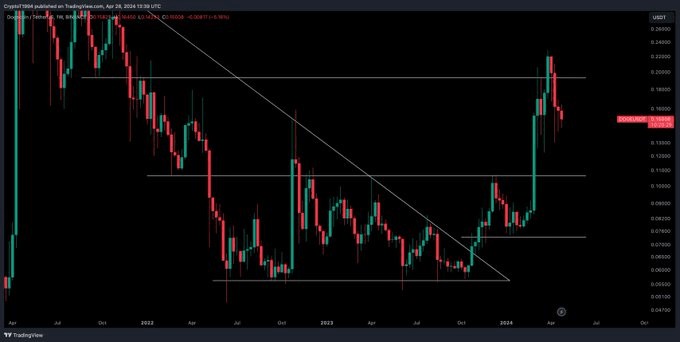時間:2024-02-16|瀏覽:352
愛荷華州司法委員會批準了一項看似進步的數字資產法案,對《統一商法典》進行了重大修訂,明確旨在將數字資產和電子記錄納入商業交易。該法案名為 House File 2519,標題為“與商業交易有關的法案,包括電子記錄和數字資產的控制和傳輸”。
正如司法委員會 2 月 15 日通過 TrackBill 監測的報告所述,這項立法旨在解決商業法律框架內數字資產帶來的復雜性和機遇。通過提供一種細致入微的電子記錄控制和傳輸方法,該法案承諾提高數字交易的法律清晰度和安全性,滿足不斷發展的數字經濟的需求。
House File 2519 通過為“可控電子記錄”、“數字資產”和“智能合約”等術語提供全面的定義,澄清了數字資產的法律地位。這種精確性旨在減少歧義并為數字商務營造更安全的環境。然而,州、聯邦和國際司法管轄區之間的此類定義可能存在差異,這增加了數字資產服務提供商的潛在復雜性。
將數字資產視為個人財產
然而,新的定義是該法案的一個關鍵方面。該法案承認2022年《統一商法典修正案》第12條中智能合約的合法性,規定不能僅僅因為合同是通過分布式賬本技術或智能合約執行而否認其法律效力或可執行性。這確保了智能合約在滿足某些條件時自動執行合同條款,與傳統合同具有相同的法律地位。
此外,該法案還引用了 2022 年法案中促進通過電子方式記錄房地產的規定。具體來說,它強調了如果轉讓證據符合州法律概述的一般要求,并且格式符合電子服務系統設定的標準,則該縣記錄房地產轉讓的能力。該法案規定,該系統使各縣和愛荷華縣記錄員協會能夠合作實施縣土地記錄信息系統。
Building on these aspects of the 2022 Act, House File 2519 aims to amend and add to the legal framework surrounding digital assets, focusing on adjusting the definition of “digital asset.” The bill amends the definition by eliminating exceptions previously recognized under the Uniform Commercial Code (UCC). This means that certain electronic records previously excluded from being considered digital assets, such as electronic records representing an interest in specific physical or tangible property (chattel) or a lease of such property, are no longer excluded.
For example, suppose a business takes out a loan to purchase a piece of equipment, and the loan agreement also grants the lender a security interest in that equipment as collateral. In that case, the document detailing this arrangement can be considered chattel paper. If this document is created, signed, and stored electronically, it’s an electronic record evidencing chattel paper. This digital form is increasingly common in today’s digital and financial transactions, offering a more secure and efficient way to electronically manage and transfer interests in real-world assets (RWA).
The amendment simplifies the classification of digital assets, treating them simply as personal property rather than specifically as intangible personal property. This is a shift from the possible previous categorization that might have considered digital assets more narrowly as intangible personal property. This broader classification could have implications for how digital assets are treated in various legal and commercial contexts, providing a more straightforward approach to their classification.
Intangible personal property historically referred to rights and licenses, whereas tokenized RWAs related to real estate may be more appropriately treated as personal property akin to physical property.
These provisions reflect House File 2519’s approach to further integrating digital assets into Iowa’s commercial and legal frameworks. By amending the definition of digital assets and clarifying their classification, the bill aims to simplify and modernize the regulatory environment for digital assets, making it more conducive to the evolving digital economy. Additionally, by defining terms such as “electronic services system,” the bill provides legal clarity for the operation of digital asset systems and services within the state.
Interestingly, the legislation outlines no-action protection for qualifying purchasers of controllable electronic records, asserting that filing a financing statement under Article 9 does not constitute notice of a property right claim in a controllable electronic record.
立法中的這一規定意味著購買可控電子記錄(例如數字資產或代幣)的個人將獲得法律保護,免受僅因缺乏財務報表而對其所有權提出質疑的索賠。從本質上講,即使沒有提交融資聲明來公開聲明數字資產的擔保權益,購買者對該資產的權利也受到保護。其目的是通過簡化所有權證明并減輕參與數字交易的各方的管理負擔來簡化交易。
國家通過未經認可的中立立法與 CBDC 保持距離。
該法案還明確指出,其條款不應被解釋為支持、認可、創建或實施國家數字貨幣。這一立場確保立法對于國家政府或中央銀行集中發行的數字貨幣(CBDC)保持中立,而是將重點放在數字資產的監管框架上,而不促進或促進國家數字貨幣的建立。
House File 2519 對數字資產服務提供商和用戶的潛在影響包括加強監管、增加法律和運營復雜性,以及需要進行技術調整以滿足數字資產控制的法律標準。這些挑戰凸顯了該法案全面嘗試使愛荷華州的法律框架適應數字時代,平衡創新與法律清晰度和消費者保護。
House File 2519 代表著將數字資產納入該州法律環境的一步,旨在為數字交易提供更安全、更清晰的法律框架。雖然該法案的詳細方法引入了具體的監管和運營挑戰,但它也為加強支持數字經濟的法律基礎設施提供了機會。
![[喜悅]愛荷華州數字資產法案重新定義RWA為個人財產](/img/btc/24.jpeg)








